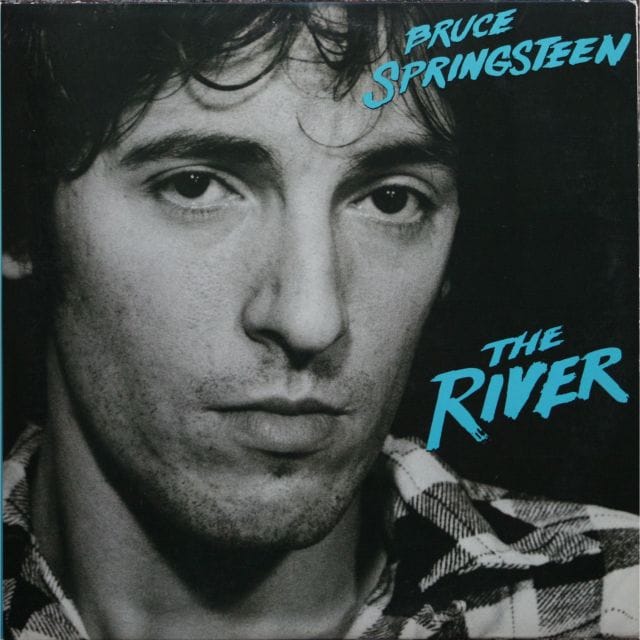Episodes: Darkness on the Edge of Town

The hospital where I visit my wife as she convalesces sits at the square corner of the town I grew up near, went to school in. When entering the city limits to go to school every morning, the hospital was the first sign that you had left the wildness of the prairie and entered what passed for civilization. I have always said that once you pass Sioux Falls (the city at the state's far eastern edge), then what's left until you get to the Pacific Coast is man's increasingly feeble attempts to make a mark upon nature. Some (like, say, Denver) are massive successes. Others are more modest accomplishments. But it's not hard to give way to apocalyptic thinking out here. The darkness always swallows you again, sooner or later.
It's that way out by the hospital, too. It sits at the intersection of the major highway that forms the town's backbone and a county road that peters out into gravel after about four miles in either direction. Sitting at this intersection at twilight, waiting to turn left back into the wildness, toward my childhood home, it's not hard to stare across the highway as the county road skitters off into the dark. You would go past the cemetery, then a few more homes, and then out into nothing, spare yardlights punctuating the darkness.
The night looks blue at this corner, like a tongue that encroaches further into the dim streetlights than it should. This doesn't seem like something you would pass through. It's a grotto you must dive to the bottom of.
***
The best music, the music you love most, is something you've always been hearing in your head, all these years, without putting your finger on it. You don't discover the music you love. It rises up out of your subconscious and discovers you.
So it was for me with Bruce Springsteen. I first really sat down and listened to his Born to Run my senior year of college, and it was like an explosion of synapses. This was everything I had been and everywhere I was going. It was music that had connected with millions, but it also felt like it was written in a language only I spoke. I grew up hearing stories about speaking in the tongues of angels. Music is what has gotten me closest.
I will not be the first to point out that Born to Run, Darkness on the Edge of Town, and The River form a loose trilogy. They occasionally employ the same characters (or very similar ones), but their foremost success is in revisiting the same themes and seeing how they twist in the wind as you get older.
Just look at their title songs! "Born" is a teenager's anthem, filled with dreams of escape and success. It is not a song that believes in failure, perhaps because as Springsteen recorded it, he knew he was putting his entire career on the line. "Darkness," meanwhile, is about the way you slowly block yourself in, the way that your life starts to calcify in ways you can't entirely perceive. It's a song, in other words, for 20somethings.
It's "The River" I've started listening to more and more now that I've passed 30 and am beginning to understand the contours of what will be my life. The characters in that song (and on that album) aren't precisely unhappy, but they're also filled with the dim sense that all of their other selves are shutting off, one by one, the lamps that once illuminated them fizzling out, until only the one self is left. You once were someone with a multiplicity of potential selves. Now, you are someone with maybe three or four potential selves. Soon, you will have only the one, because you'll be dead, and your story will be set.
The characters on The River make self-destructive choices. They attempt to walk back their happiness because there could be something better if they just tuned into the right station. If the highway loomed with promise on Born and portent on Darkness, it now holds only the night, and all those lights of your long lost other selves in the darkness, gleaming like ships on the horizon.
Born was the album I needed as I wrapped up college and headed into the life I expected to go a certain way. Darkness was the album I needed as the first full-time job I got turned out to be an unending labyrinth with no destination in sight.
And now, I suppose, I'm happy. Of all of those potential lives Born promised, I've somehow, against all odds, landed in one of them. But that doesn't shut off the ghosts of other selves. That doesn't leave me feeling any less haunted as we streak by the cemetery, up into the cool dark of that big, blue tongue.
***
She will be fine, I tell myself, because it is a disease lots of people get every year. She is healthy and in her 30s. The doctors say she will be fine. She just needs to rest. I will be fine, too, once I know she is safe.
But someday, she won't be, and someday, I won't be. You can sit and stare into the grotto as long as you want, postponing your dive. But you will reach bottom someday, cold and rocky or smooth and silty, and you won't be able to go any further.
***
Springsteen ends The River with "Wreck on the Highway," a song haunted by mortality. He, mega-successful beyond the wildest dreams of the kid meticulously crafting Born, understands that even if you achieve most everything, you can't achieve it all. There will always be more lives you didn't get to live. When you reach bottom, you won't be a continuum any more. You'll be a punctuation mark.
--
Episodes is published daily, Monday through Friday, unless I don't feel like it. It is mostly about television, except when it's not. Read more of my work at Vox Dot Com.




